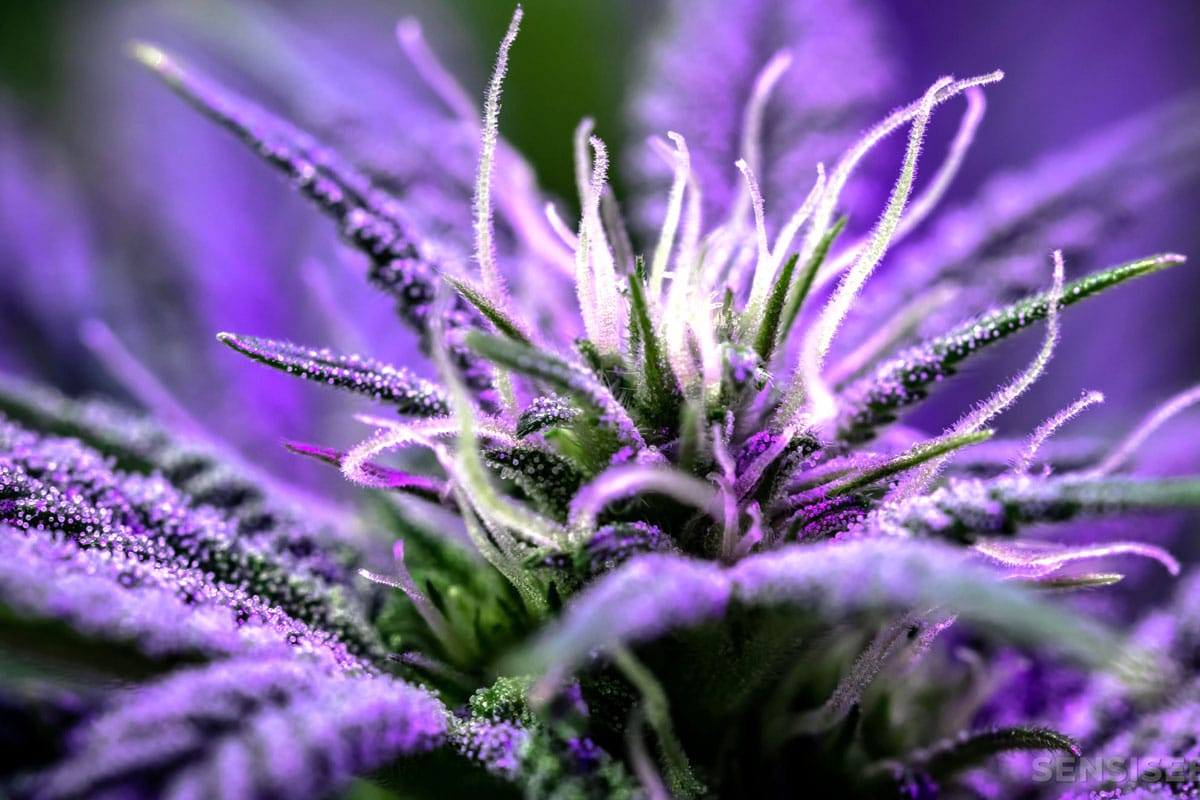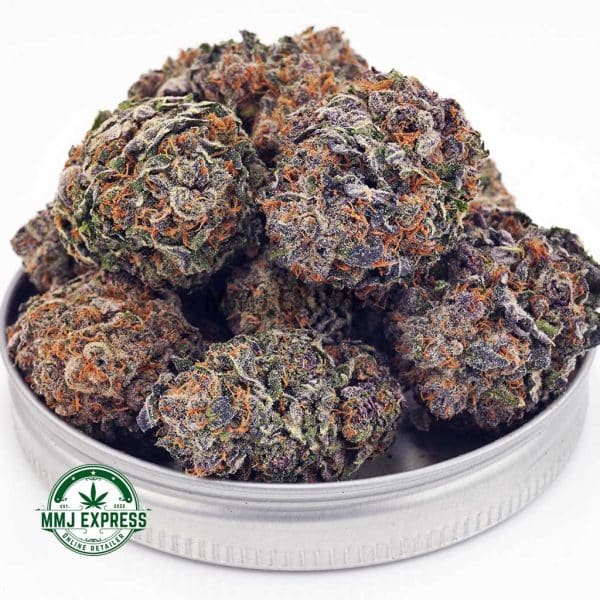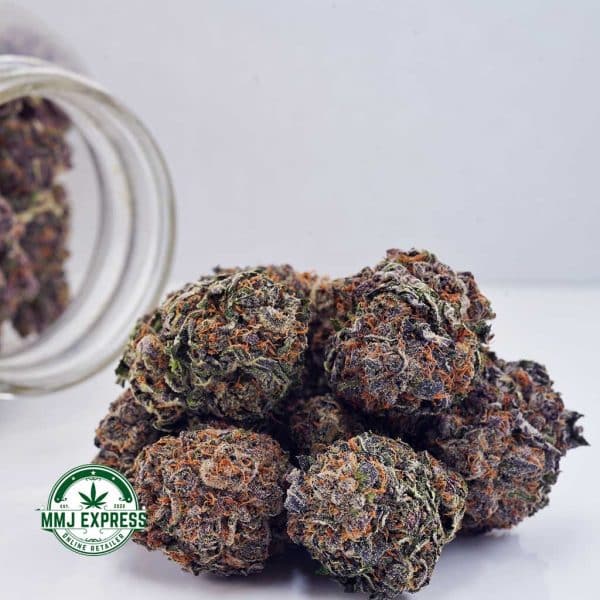Purple Cannabis 101: Is It Stronger, Better, or Just Pretty?

🌿 Introduction: The Allure of Purple Cannabis
If you’ve ever browsed a dispensary menu or scrolled through cannabis social media feeds, you’ve probably seen it — that eye-catching, deep violet bud that stands out from the crowd. Purple cannabis has become one of the most visually striking and sought-after varieties in the cannabis world.
But beyond the Instagram-worthy looks, many consumers ask:
Is purple cannabis stronger? Is it better? Or is it just marketing hype in a prettier package?
In this guide, we’re breaking down the science, myths, and facts behind purple cannabis. From what makes weed turn purple, to how it compares in potency and flavor, and whether it’s worth seeking out over green buds — we’ve got you covered.
💜 What Is Purple Cannabis?
Purple cannabis refers to cannabis flower that features deep purple, violet, or lavender hues in its leaves, buds, or stems. These colors can range from a faint tint to nearly black, making the strain visually unique and aesthetically pleasing.
While green is the most common color for cannabis, some strains naturally develop purple pigmentation, especially when grown under the right conditions.
🌈 What Makes Cannabis Turn Purple?
The color of cannabis is influenced by a group of plant pigments called anthocyanins — a type of flavonoid also found in blueberries, red cabbage, and eggplants.
🔬 Anthocyanins 101:
- Found in the outer cell layers of the plant
- Responsible for red, purple, and blue hues in fruits and flowers
- Expression is often triggered by temperature, pH levels, and genetics
🌡️ Temperature & Environment Matter
Cool nighttime temperatures (below 60°F or 15°C) can stimulate anthocyanin production, especially in strains genetically predisposed to show color.
That’s why outdoor growers or indoor cultivators who drop nighttime temps late in flower can often coax out vivid purple tones.
🧬 Is Purple Cannabis Genetic?
Absolutely — genetics play a major role. Not all cannabis strains are capable of turning purple, even under the perfect environmental conditions.
Many famous purple strains are bred specifically for their coloration, such as:
- Granddaddy Purple
- Purple Dream
- Purple Haze
- Grape Ape
- Blackberry Kush
These strains have been selectively bred to enhance anthocyanin production, especially during the late flowering stages.
So yes — purple cannabis starts with purple genetics.
🍇 Does Purple Cannabis Taste Different?
Color alone doesn’t dictate flavor, but many purple strains are known for fruity, berry-like terpenes that complement the visual experience.
Common terpenes found in purple cannabis include:
- Myrcene – Earthy, musky, sedative
- Pinene – Pine, crisp, alert
- Caryophyllene – Peppery, anti-inflammatory
- Limonene – Citrusy, uplifting
- Linalool – Floral, calming
Some consumers associate purple buds with grape, berry, or candy-like flavors, but these flavors are more about the terpene profile than the color itself.
💥 Is Purple Cannabis Stronger?
This is one of the most common myths in the cannabis world — that purple weed = stronger weed.
🔬 Here’s the truth:
- Anthocyanins do not affect THC or CBD content
- The color of the flower has no direct impact on how high you’ll get
- Potency is determined by genetics, grow conditions, and curing — not color
So while a purple strain might be potent, it’s not because of the color. It’s likely just a well-grown, well-bred cultivar.
Bottom line: Purple cannabis isn’t stronger because it’s purple. The strength comes from genetics and growing practices.
🤔 Is Purple Cannabis Better?
Better is subjective. Some consumers prefer the unique appearance and flavors of purple weed, while others don’t notice a major difference.
Pros of Purple Cannabis:
- Visual appeal – It stands out and often looks premium
- Unique terpene profiles – Fruity, berry-forward flavors
- Conversation starter – Aesthetically impressive
- Genetically stable strains – Often bred for flavor as well as color
Cons:
- Color ≠ potency – Don’t expect a stronger high just because it’s purple
- Can be overhyped – Some purple strains are mid-tier dressed up in fancy colors
- Requires cooler temps – May be harder to grow indoors without precise control
So, is purple cannabis better?
Only if you like the flavor, strain effects, and look — but not based on strength alone.
🔥 Popular Purple Cannabis Strains to Try
Here are some of the most well-known and beloved purple cannabis strains that offer great effects and beautiful flower:
1. Granddaddy Purple (GDP)
- Type: Indica
- THC: ~17–23%
- Flavors: Grape, berry, sweet
- Effects: Relaxing, sedative, stress relief
2. Purple Haze
- Type: Sativa
- THC: ~15–20%
- Flavors: Sweet, berry, earthy
- Effects: Euphoric, creative, uplifting
3. Purple Dream
- Type: Indica
- THC: ~18–22%
- Flavors: Earthy, sweet, floral
- Effects: Body high, couch-lock, pain relief
4. Grape Ape
- Type: Indica-dominant
- THC: ~18–23%
- Flavors: Grape, berry, hash
- Effects: Mellow, sleepy, relaxing
5. Blackberry Kush
- Type: Indica
- THC: ~16–20%
- Flavors: Berry, diesel, sweet
- Effects: Soothing, mood-lifting, sedative
These strains are not only gorgeous to look at, but they also offer a wide range of effects and flavors, making them great for evening sessions, creative use, or stress relief.
⚖️ Purple Cannabis vs. Green Cannabis: Which Is Better?
Here’s a side-by-side comparison:
| Feature | Purple Cannabis | Green Cannabis |
|---|---|---|
| Appearance | Vivid purple hues, often eye-catching | Traditional green shades |
| Potency | Not directly related to color | Depends on genetics and grow quality |
| Flavor Profile | Often fruity or grape-like | Varies widely (earthy, citrus, pine) |
| Grow Conditions | Needs cooler temps to express color | Easier to grow under standard settings |
| Price | Sometimes more expensive due to demand | Usually more affordable |
Verdict: Neither is “better.” It depends on your personal taste, desired effects, and strain genetics.
💡 How to Tell if Purple Cannabis Is Naturally Colored
Some growers may try to artificially manipulate color using cold shock or nutrient tricks, which may not always result in the best flavor or potency.
To ensure you’re getting naturally purple cannabis:
- Look for strains known to turn purple (like GDP or Purple Kush)
- Buy from reputable dispensaries or growers
- Look for consistent coloration in buds and sugar leaves, not just tips
- Smell and inspect — naturally purple weed should still smell potent and fresh
🛒 Where to Buy High-Quality Purple Cannabis in Canada
Looking for premium purple strains delivered right to your door?
✅ Try MMJ Express – Canada’s #1 Online Dispensary
Why Buy Weed?
- 🌿 Wide selection of purple cannabis strains
- 🔬 Lab-tested for quality and potency
- 📦 Fast, discreet shipping across Canada
- 💰 Affordable prices on top-shelf flower
- ⭐ Trusted by thousands of Canadian cannabis consumers
Whether you’re seeking Granddaddy Purple for sleep or Purple Haze for creativity, Buy Weed has the curated flower selection to match your mood and your eyes.
🧠 Final Thoughts: Is Purple Cannabis Worth Trying?
Purple cannabis isn’t just a visual trend — it’s a natural expression of plant genetics, enhanced by environmental factors and refined through breeding.
While it doesn’t make your weed stronger by default, many purple strains offer unique flavors and soothing effects that make them well worth trying.
So if you’re drawn to the deep hues and berry-rich profiles of purple strains, go ahead — treat yourself to some violet vibes. Just remember: potency is in the plant, not the pigment.


